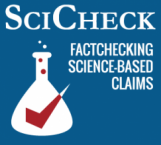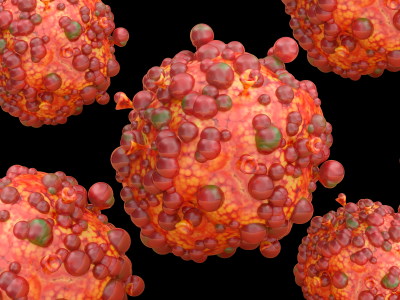Post Makes Baseless Allegations About Public Health Response to Monkeypox Outbreak
SciCheck Digest
A post published in English and Spanish repeats the debunked idea that the current monkeypox outbreak might have resulted from a virus that was created in a lab. The post also baselessly alleges that the World Health Organization’s decision to declare the outbreak a public health emergency was due to financial incentives.
Full Story
On July 23, the World Health Organization declared the monkeypox outbreak a public health emergency of international concern, or PHEIC. The decision was made by the organization’s director-general, Dr. Tedros Adhanom Ghebreyesus, after the emergency committee could not come to a consensus on the matter.
With many countries facing a growing outbreak, Tedros overruled his advisers, who had voted nine to six in favor of not declaring a PHEIC. Many public health experts cheered the decision.
 But a post from Dr. Joseph Mercola, a longtime anti-vaccine activist who has been labeled one of the top spreaders of COVID-19 misinformation, claims without evidence that the PHEIC declaration was financially motivated — and part of a plot to “justify continued tyranny” following the COVID-19 pandemic.
But a post from Dr. Joseph Mercola, a longtime anti-vaccine activist who has been labeled one of the top spreaders of COVID-19 misinformation, claims without evidence that the PHEIC declaration was financially motivated — and part of a plot to “justify continued tyranny” following the COVID-19 pandemic.
“Ever since the first European cases of monkeypox were confirmed in early May 2022, many suspected smallpox or monkeypox would become the next global pandemic to justify continued tyranny and the World Economic Forum’s Great Reset,” the post published in English and Spanish reads.
Drawing a parallel to unsupported theories about the origins of COVID-19, the post also falsely suggests that monkeypox virus was “made” at a lab in China — a claim we recently debunked — and gives a distorted view of the monkeypox vaccines.
What makes Mercola’s text particularly confusing is that he intertwines accurate and false information throughout the post, often contradicting himself — making it hard for readers to discern what is true and what is not.
Financial Interest Claims
As we said, Mercola’s post suggests, without evidence, that the WHO director-general’s decision to declare the outbreak a public health emergency was based on financial interests.
“COVID-19 has arguably been the greatest profit maker for Big Pharma of all time, and monkeypox is undoubtedly viewed as a similar future profit maker,” the post reads, proposing that health authorities are using the outbreak to incite fear and promote the use of vaccines for the benefit of the pharmaceutical industry.
“As COVID fatigue is setting in and people are increasingly resisting the shots, monkeypox allows for a brand-new cycle of fear porn to be spun, and for new experimental vaccines to be rolled out. This, I fear, is why Ghebreyesus unilaterally decided to declare monkeypox a global health emergency,” he continues.
It is true, as Mercola points out, that the WHO advisory panel was split on the decision, with nine members against the declaration and six for it. The panel was “unable to reach consensus regarding advice” to the director-general on whether the outbreak “should or should not” be determined a public health emergency of international concern, according to WHO’s statements on the meeting.
A PHEIC is defined as “an extraordinary event which is determined to constitute a public health risk to other States through the international spread of disease and to potentially require a coordinated international response.” To enable such a response, a PHEIC grants the WHO’s director-general the power to issue temporary recommendations to member countries.
In June, the WHO’s emergency committee had declined to label monkeypox a public health emergency, but had agreed to reconsider if, among other things, there is an increase in the number of cases, “both among and beyond” men who have sex with men. The decision was criticized by many experts concerned by the urgency of the outbreak. A PHEIC declaration can make an international response easier and faster, increase funding streams and accelerate the development of vaccines or other therapies needed.
Following the panel’s second meeting on July 23, which lasted seven hours, Tedros made the final decision.
“I have decided that the global monkeypox outbreak represents a public health emergency of international concern,” he said.
Tedros argued that since the last time the panel had met, cases had continued to grow across the world, including five deaths. He also said the advice of the emergency committee was one of five elements he was required to consider before making the decision. The other four, he said, are: information provided by countries; the three criteria for declaring a PHEIC; scientific principles, evidence and other relevant information; and the risk to human health, international spread and the potential for interference with international traffic.
“WHO’s assessment is that the risk of monkeypox is moderate globally and in all regions, except in the European region where we assess the risk as high,” he said. “There is also a clear risk of further international spread, although the risk of interference with international traffic remains low for the moment. So in short, we have an outbreak that has spread around the world rapidly, through new modes of transmission, about which we understand too little, and which meets the criteria in the International Health Regulations.”
There is no evidence that it was “financially motivated,” as Mercola suggests.
According to documentation of the committee’s meeting, those not in favor of the PHEIC determination argued that the declaration could, among other things, increase the “stigma, marginalization and discrimination” against LGBTI+ communities, and the demand for already limited vaccines.
Lab-Made Claims
As we’ve explained, monkeypox is a rare disease caused by the monkeypox virus, a member of the orthopoxvirus genus in the poxvirus family.
The monkeypox virus is transmitted to humans from animals in areas in which the virus is endemic, such as the tropical rainforest areas of central and west Africa. The first human case was recorded in 1970. Once a person becomes infected, they can spread the virus to other people via close contact, including intimate contact.

The characteristics of the current monkeypox outbreak, first detected in May in the U.K., are unprecedented. This is the first time the disease is spreading in such large numbers across the world. As of Aug. 29, there were more than 48,500 cases of monkeypox in 99 countries, according to the Centers for Disease Control and Prevention, with more than 18,000 people infected in the U.S. The outbreak also differs from previous ones in that most of the cases, but not all, are occurring among men who have sex with men.
But none of that means that the monkeypox virus was engineered in a lab, as Mercola falsely suggests at one point in his post.
“The monkeypox virus was created at the Wuhan Institute of Virology,” reads a subhead in the post in Spanish. The subhead in the English version is slightly less specific: “Monkeypox Virus Made by Wuhan Institute of Virology.”
He goes on to say, “And, as with COVID, there’s evidence that we may not be dealing with something that arose accidentally and naturally.”
That’s not accurate. There is no evidence that either SARS-CoV-2, the virus that causes COVID-19, or the monkeypox virus was intentionally engineered, as the post misleadingly suggests. (Nor is there evidence that either virus came from a lab accidentally without engineering.)
Mercola then moves on to discuss a video posted by John Campbell, a retired nurse educator in the U.K., about a study in which scientists from the Wuhan Institute of Virology used a method known as transformation-associated recombination to create a portion of the monkeypox viral genome that could be used in a diagnostic test for monkeypox.
As we’ve written, there is no connection between the current monkeypox outbreak and the WIV study. Researchers did not create a full monkeypox virus genome — they only assembled a fragment of it, which isn’t enough to produce a functional virus. Plus, the monkeypox viral sequence they used is different from the virus now circulating. (For more, see SciCheck’s “Posts Distort Chinese Research Creating Fragment of Monkeypox Viral Genome.”)
Mercola acknowledges part of this in his post. He says, for example: “[T]hey did not create a full-length genome in this study. The genome fragment they used was only one-third of the full genome of the monkeypox virus.” But earlier, he misleadingly says that the scientists “basically built a new genome.”
Vaccine Claims
Mercola’s post also could leave readers with a distorted view of the monkeypox vaccines and how they are being deployed to combat the outbreak.
For example, he says “there is no specific monkeypox vaccine.” It’s true that the two vaccines that may be used against monkeypox in the U.S. — Jynneos and ACAM2000 — are also used against smallpox.
But the Jynneos vaccine, which is the preferred one for its safety profile, was specifically approved by the Food and Drug Administration for the prevention of monkeypox in 2019. Mercola’s description could leave the false impression that there was no FDA-approved vaccine for monkeypox.
Contrary to the post’s claim that it’s “unclear which of the two vaccines is currently being administered,” thus far the ACAM2000 vaccine has not been used. That’s because it has more side effects and can be dangerous for pregnant people and for those with certain skin conditions or weakened immune systems — such as those with HIV, which reportedly includes about a third of the people infected during this outbreak. And because ACAM2000 uses live, replicating vaccinia virus (a less severe orthopox virus), its recipients can pass the vaccine virus to others. Jynneos does not have that problem, as it contains a nonreplicating modified vaccinia virus.
Mercola also argues that monkeypox vaccination is unwise and predicated on too little data, saying, for example, that there’s “no telling whether the vaccine will have any benefit at all.”
He’s right that there isn’t a lot of data on how well — or how long — the Jynneos vaccine will work.
Data from a study conducted in the late 1980s in the Democratic Republic of the Congo suggests that the precursor of the ACAM2000 smallpox vaccine was 85% effective in preventing monkeypox. There are no randomized controlled trials studying efficacy of Jynneos against monkeypox in humans, but there are data from a smallpox trial showing that the vaccine produces neutralizing antibodies in people that are comparable to those produced in response to the ACAM2000 vaccine.
The FDA approved Jynneos based on that evidence, along with animal data showing that the vaccine protected nonhuman primates infected with monkeypox virus.
Still, there is enough evidence for scientists to be confident that the vaccine will have some benefit.
Dr. Boghuma Titanji, an infectious disease specialist at Emory University, told NPR, that she had no doubt that Jynneos would provide some protection, even if it’s uncertain how much.
When she gives someone the vaccine, she said, she’s upfront about those limitations.
“I tell them, ‘We do know that you’re going to get some protection from this vaccine. Some protection is better than no protection. We also do know that the vaccine can reduce the severity of the disease if you do get infected. But we don’t know for a fact that you would be completely protected from getting monkeypox,’” she said.
It is also important to mention that currently the CDC is not recommending mass vaccination. The two-dose vaccine is only available for those with a known or presumed exposure to monkeypox, and those at high risk of exposure. The vaccine provides the highest protection two weeks after the second dose.
On Aug. 17, Dr. Rosamund Lewis, WHO’s technical lead for monkeypox, said that although there are no direct clinical efficacy studies in the context of the current outbreak, the WHO is starting to see results from some observational studies. They do show some protection, but also some breakthrough cases.
“We are not expecting 100% efficacy for these vaccines for the prevention of monkeypox,” said Lewis during a telebriefing. “We don’t know the exact information. What we are seeing are breakthrough cases which are not really surprises, but it reminds us that vaccine is not a silver bullet.”
Editor’s note: FactCheck.org does not accept advertising. We rely on grants and individual donations from people like you. Please consider a donation. Credit card donations may be made through our “Donate” page. If you prefer to give by check, send to: FactCheck.org, Annenberg Public Policy Center, 202 S. 36th St., Philadelphia, PA 19104.
Sources
“WHO Director-General declares the ongoing monkeypox outbreak a Public Health Emergency of International Concern.” World Health Organization. Press release. 23 Jul 2022.
“Second meeting of the International Health Regulations (2005) (IHR) Emergency Committee regarding the multi-country outbreak of monkeypox.” World Health Organization. Statements. 23 Jul 2022.
Kupfershcmidt, Kai. “WHO chief declares monkeypox an international emergency after expert panel fails to reach consensus.” Science. 10 Aug 2022. ” Science. 23 Jul 2022.
Nuzzo, Jennifer B., et al. “The WHO Declaration of Monkeypox as a Global Public Health Emergency.” JAMA. 27 Jul 2022.
Frenkel, Sheera. “The Most Influential Spreader of Coronavirus Misinformation Online.” New York Times. Updated 6 Oct 2021.
Garcia-Navarro, Lulu. “One Of The Most Influential Voices In Vaccine Misinformation Is A Doctor.” NPR. 8 Aug 2021.
Jones, Brea. “Posts Distort Chinese Research Creating Fragment of Monkeypox Viral Genome.” FactCheck.org. 29 Jul 2022.
“Emergencies: International health regulations and emergency committees.” World Health Organization. Dec 19 2019.
Alaoi, Sarah. “WHAT YOU NEED TO KNOW ABOUT THE MONKEYPOX PUBLIC HEALTH EMERGENCY.” United Nations Foundation. 29 Jul 2022.
Joseph, Andrew. “WHO: Monkeypox outbreak not yet a global public health emergency.” Stat News. 25 Jun 2022.
“Meeting of the International Health Regulations (2005) Emergency Committee regarding the multi-country monkeypox outbreak.” World Health Organization. Statements. 22 Jun 2022.
Travis, John and Kai Kupfershcmidt. “WHO declines to label monkeypox a global emergency.” Science. 25 Jun 2022.
McDonald, Jessica. “Q&A on Monkeypox.” FactCheck.org. Updated 4 Aug 2022.
About Monkeypox. Centers for Disease Control and Prevention. Updated 22 Jul 2022.
Poxvirus. Centers for Disease Control and Prevention. Updated 11 May 2015.
Monkeypox. World Health Organization website.
Monkeypox, How it Spreads. Centers for Disease Control and Prevention. Updated 29 Jul 2022.
Monkeypox Outbreak 2022. World Health Organization.
Monkeypox 2022 Global Map & Case Count. Centers for Disease Control and Prevention. Last accessed 30 Aug 2022. Updated 29 Aug 2022.
McDonald, Jessica. “The Facts – and Gaps – on the Origin of the Coronavirus.” FactCheck.org. 25 Jun 2022.
Yang, Lei, et al. “Efficient assembly of a large fragment of monkeypox virus genome as a qPCR template using dual-selection based transformation-associated recombination.” Virologica Sinica. Vol 37, Issue 3. Jun 2022.
Campbell, John. “NIH, Wuhan were working on monkeypox.” YouTube. 31 May 2022.
Monkeypox JYNNEOS Vaccine. Centers for Disease Control and Prevention. Accessed 30 Aug 2022, updated 10 Aug 2022.
Monkeypox ACAM2000 Vaccine. Centers for Disease Control and Prevention. Accessed 30 Aug 2022. Updated 9 Aug 2022.
Jynneos. Food and Drug Administration. Accessed 18 Aug 2022. Updated 21 Jun 2021.
“FDA approves first live, non-replicating vaccine to prevent smallpox and monkeypox.” Food and Drug Administration. Press release. 24 Sep 2019.
“Monkeypox Update: FDA Authorizes Emergency Use of JYNNEOS Vaccine to Increase Vaccine Supply.” Food and Drug Administration. Press release. 9 Aug 2022.
“Key Facts About Vaccines to Prevent Monkeypox Disease.” Food and Drug Administration. Accessed 18 Aug 2022. Updated 18 Aug 2022.
“Fauci Explains Why Smallpox Vaccine ACAM2000 Isn’t Being Used for Monkeypox.” Newsweek. 5 Aug 2022.
Smallpox Vaccines. Centers for Disease Control and Prevention. Updated 8 Aug 2022.
Thornhill, J.P., et al. “Monkeypox Virus Infection in Humans across 16 Countries — April–June 2022.” The New England Journal of Medicine. 21 Jul 2022.
Patel, Aathis, et al. “Clinical features and novel presentations of human monkeypox in a central London centre during the 2022 outbreak: descriptive case series.” The BMJ. 28 Jul 2022.
“Joint ECDC-WHO Regional Office for Europe Monkeypox Surveillance Bulletin.” ECDC and WHO. 17 Aug 2022.
“Monkeypox ACAM2000 Vaccine.” Centers for Disease Control and Prevention. Accessed 18 Aug 2022. Updated 9 Aug 2022.
Kupfershcmidt, Kai. “How effective is the monkeypox vaccine? Scientists scramble for clues as trials ramp up.” Science. 10 Aug 2022.
Jezek, Z, et al. “Human monkeypox: secondary attack rates.” Bulletin of the World Health Organization. 66 (4): 465-470. 1988.
Rao, Agam K, et al. “Use of JYNNEOS (Smallpox and Monkeypox Vaccine, Live, Nonreplicating) for Preexposure Vaccination of Persons at Risk for Occupational Exposure to Orthopoxviruses: Recommendations of the Advisory Committee on Immunization Practices – United States, 2022.” CDC MMWR. 3 Jun 2022.
Emergency Monkeypox, Food Insecurity and Drought and COVID-19 update. WHO Press briefing. 17 Aug 2022.
FACT SHEET: White House Announces New Actions to Combat Monkeypox Outbreak. The White House. Statements and releases. 18 Aug 2022.
Doucleff, Michaeleen. “There’s a bit of good news about monkeypox. Is it because of the vaccine?” NPR. 18 Aug 2022.


